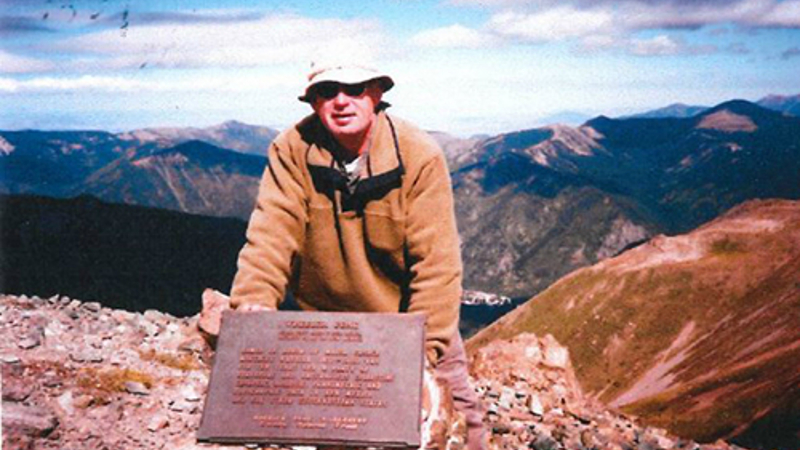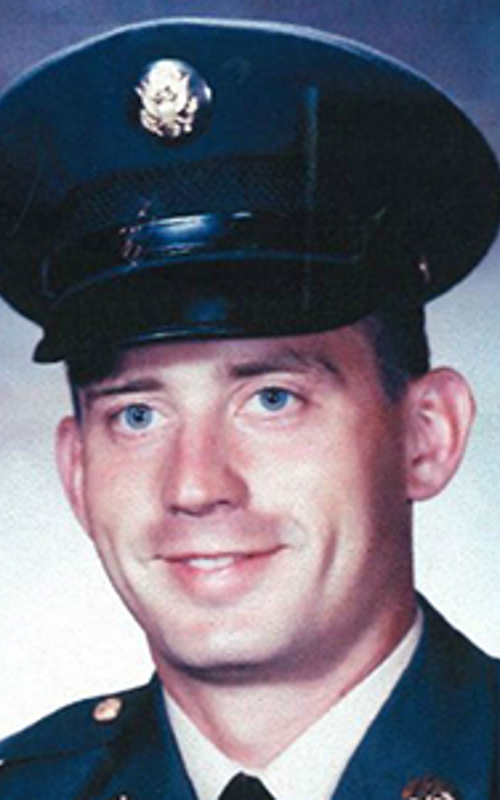Allen Way attended the University of Iowa prior to serving in the United States Army during the Vietnam War. After his tour, he returned to serve as the Director of the State Crime Commission in Iowa before becoming a beer distributor and city councilman. After serving, Way’s personality changed in subtle but expected ways for Veterans at the time. As Way got older, he suffered from anxiety, paranoia, flashbacks, and night terrors. In 2017, at the age of 71, Way took his own life. After his death, Way’s family donated his brain to the UNITE Brain Bank where researchers diagnosed him with stage 3-4 (of 4) Chronic Traumatic Encephalopathy (CTE). His family shared his story to show how CTE can affect our nation’s heroes.

Al Way was a quiet, kind, humble man, to whom I am proud to say I shared 50 years of marriage. I met Al while in college at the University of Iowa. We married before our senior year and upon graduation he received his orders that he would be serving in the Army for the next two years of his life. He was outstanding trainee in basic training and then Leadership Graduate from Non Commissioned Officers school at Ft. Benning Georgia. He served as a Platoon Sergeant with status of E6 in the Infantry. His field of duty was predominately Ahn Khe Vietnam. During his service he experienced blasts from mortars, claymores, and bangalore torpedoes. He endured a twenty-foot fall from a cliff into a rock filled river and survived it, to get up and keep moving through the jungle. He returned home after his eleven-and-a-half-month deployment, to a new four-month-old daughter so he took on his new role immediately. Like many others returning from Vietnam, he carried on and went about the business of taking care of his family then welcoming another baby, a boy, followed by another daughter. Al excelled at all areas of his life, including serving his State of Iowa as the Director of the State Crime Commission, until he decided to strike out and run his own business as a beer distributor. He served his community as a City Councilman, volunteer for his children’s school, church and countless other organizations.

When he returned from Vietnam there were some more subtle personality changes, but you would expect this from someone returning from combat duty. I would not know for several years later some of the traumatic experiences, both psychological and physical, that he had experienced. When Al started therapy at our local VA clinic he shared some of what he and others in his company had endured.
After retirement I noted increasing depression and anxiety in Al. We then were later blessed with a Veteran’s Clinic opening in our community. He started to receive service when he needed it most; medications, one on one counseling, and a PTSD group. Once again, he volunteered at the clinic to help others who were struggling as he was. A few years later there were CT scans which found a Traumatic Brain Injury. His depression increased as time went on, but he was sharing more of his experiences. He had increased paranoia, flashbacks, and night terrors. He had great difficulty remembering names, schedules and directions. He was a great woodworker, but it became a task for him to build anything. He would measure, re-measure, give up and try again. These were all things that came so easy to him in the past. Even with all the supports and numerous evaluations he seemed to be getting worse. He lost his balance on more than one occasion and would have falls that resulted in the need for emergency room visits and stitches.
On the evening of August 28, 2017, after helping me prepare supper, he washed dishes, made coffee for the next morning, and while I was gone from the house on a short walk, he took his life. I had thought that a man of his 71 years would not have the energy to do this, but I was wrong. There were no unusual behaviors on that day which would have warned me or anyone else he talked to that day.

After Al’s suicide, the deputy State Medical Examiner at the Iowa Department of Public Health called and suggested that we consider donating Al’s brain to the Boston University CTE Study. My three children and I did not hesitate to say yes. We went through three interviews, of which there were two conference calls and one written questionnaire. These were followed by a consensus conference with both the medical team and the psychological team. I was fearful that they would talk about my husband as if he were a clinical study, a file folder. We were comforted by the respectful way they discussed Al and his history. The staff at BU spoke of him as a person, who was loved with a story prior to being ill, a loving son, brother, husband, father of three and grandfather of nine. My family and I have great respect for all members of the research team. They were honoring Al in this process, not analyzing him. The findings were that my husband, Al, had stage III/IV Chronic Traumatic Encephalopathy (CTE). Now we know how very much he was struggling but kept going for his family as long as he did.
He continues to help others as he did in his earthly life and we are all so proud of him and honored that he is now part of the study. The CTE study was part of our healing during our time of grief. Despite all the heart break and trauma, my three children and I are greatly blessed to have had him for so many years.

